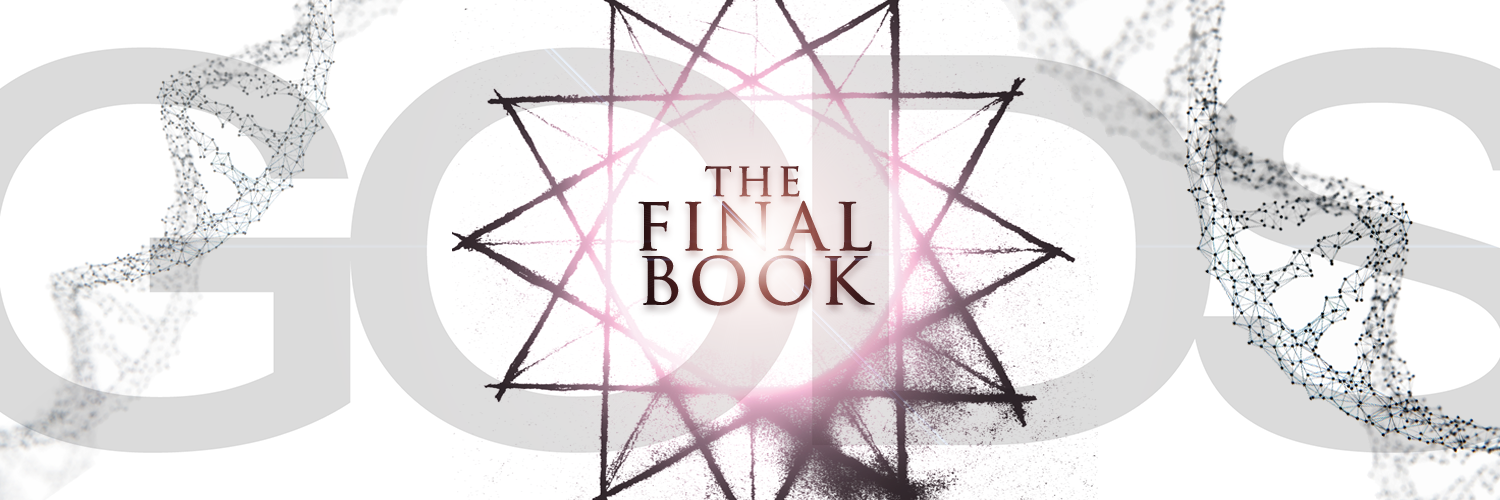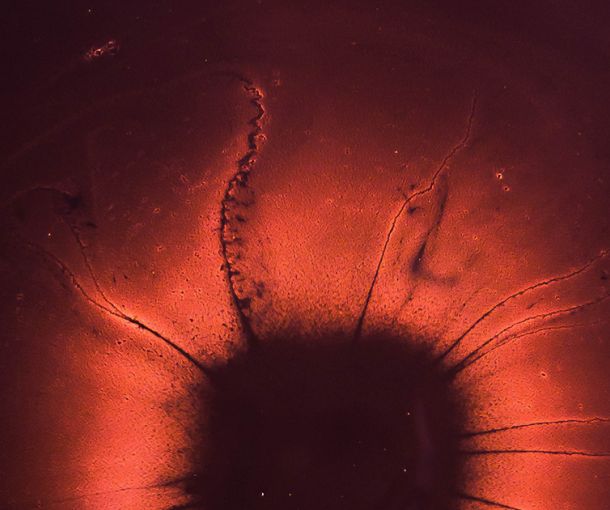Descartes' Wax: More Important Than God

First, let’s consider a question: if a thinking mind didn’t contemplate a piece of wax, would the wax even exist?
According to Rene Descartes, existence is predicated upon thinking. In order to know if something truly exists, it must think. So can wax not exist because it doesn’t think? Or does the wax not know that exists because it doesn’t think? Or do we, thinking things, give the wax existence simply by virtue of us thinking about it? But then what thought about us?
Before we can attempt to answer any of these questions, we must first define existence. “Let us consider those things which are commonly believed to be the most distinctly grasped by all: namely bodies we touch and see” (45). We can touch, taste, smell, and see the wax—we use our empirical senses to define its existence. “But notice that, as I am speaking, I am bringing it close to the fire” (45). The wax heats up, it changes shape, it loses its scent, it turns to liquid. “Does the wax still remain? I must confess that it does; no one denies it; no one thinks otherwise” (45). But if so, what happened to all of the empirical data that was originally collected to verify its existence? Those same attributes—its shape, the way it feels, smells, sounds—all are no longer accurate, but yet the wax still remains. The point has been made that empirical evidence—your senses—are not a reliable assessment when determining the true nature of being. Any information derived from the senses is not able to deliver, with absolute certainty, any clear and distinct fundamental knowledge about a corporeal substance, its true essence, or even its existence.
Because we can imagine the wax to be molded into an indefinite amount of shapes, we can imagine it to be an indefinite amount of sizes, an indefinite amount of textures and smells—yet all of these different variations do not detract or amplify its true essence, its existence, or nature of being—the only way that we can assert that wax actually exists is by rationalization of it through the mind alone (46). We, as thinking things, have no other means or constructs available to us, other than our minds, to process information about ourselves or the world. The only thing we know with all certainty, clearly and distinctly, to be true about the wax is our perception of it by means of thinking. Our “perception of the wax is neither a seeing, nor a touching, nor an imagining. Nor has it ever been, even though it previous seemed so; rather it is an inspection on the part of the mind alone” (46).
By using only our mind—because ultimately that is all we ever use to formulate any judgements or knowledge—the ability lies within us to deduce truths about the nature of the world, the universe, and ourselves. Difficulties and obstacles present themselves immediately, but that is not the fault of the mind, but rather the human. Our language is latent with errors that confuse truth, and some words still don’t exist to properly convey the deepest meaning or a new idea. Society, convention of thought, philosophies lacking a solid foundation, wrong information, information not yet known—there are countless ways in which our perception and mind can mislead us. However, by starting from an epoché of doubt, the foundational basic truth that “I exist,” which is proved through my ability to think, the natural light of the wax also becomes clear—though not by means of empiricism, but by the same means that I used to prove my own existence—by thinking, or perceiving the wax so clearly and distinctly that its existence becomes impossible to deny (Forman).
By breaking the wax down in such a way, Descartes was providing a map of how to rationally obtain knowledge and “prove” abstract concepts. He makes the point that true reasoning, especially regarding the external world, originates through the mind. Beyond this, things that are not a part of the empirical world—whether it be metaphysical or sub-atomic—also must be perceived through the same faculty of mind, and the theory asserts that the mind is just as capable of perceiving those truths, as it is the truths about the corporeal wax. “Thus what I thought I had seen with my eyes (wax), I actually grasped solely with the faculty of judgement, which is in my mind” (46).
Alternatively, things don’t have to tangibly exist for one to know their clear and distinct essence—a triangle’s true essence or meaning is just as well understood within your mind as it is seen in out in the world with your eyes.
The only thing that limits us, or throws our mind into error, is the ability to understand concepts clearly and distinctly. Or, rather, to know when knowledge is built on a solid, certain foundation which is impossible to deny. Our mind is prone to err through our reliance on empiricism, bias / disposition, or fictitious products of our imagination. Being able to see all elements of the world as clearly and distinctly as Descartes perceives the wax, reaffirms that he, himself, is a thinking thing and therefore exists; and he is emphatically perceiving his own existence with his mind. From there, he can then replace the piece of wax with any object or concept, and begin to discover its true nature.
The wax also establishes the idea of dualism—that the mind operates separately from the body. While sense experience provides us with information, it is actually our mind that deduces that information and makes judgements based upon it. By separating the mind from the body, he can eliminate error derived from the senses. This separation and distinction between the mind and body is key as he continues with his meditations and explains how one can be certain they’ve arrived clear and distinct foundations illuminated by the natural light.
Descartes chief purpose with the wax in regards to his larger argument concerning the existence of God is to show that knowledge of the mind happens prior to the knowledge of the body (Forman).
“As to the ideas of corporeal things… I notice that there are only a very few things in them that I perceive clearly and distinctly: namely, size, or extension in length, breadth, and depth…” (50). Qualities such as shape, position, or motion can clearly and distinctly be added to these corporeal things; however qualities such as colors, sounds, odors, tastes, and other tactile qualities cannot. These qualities are subjective—a material falsity—that offer no certain, clear and distinct perception that provides natural light of its true essence (50). Concretely, we cannot know what something truly is based upon material falsity, it must be supported by clear and distinct qualities, most commonly found by the use of math.
In 1641, the wax metaphor was an astounding concept. Descartes rejected all commonly held knowledge and belief—all of the science and discovery that had been made to that point—and demanded that all knowledge must (and can be) formulated on an immovable foundation of reason. By providing a place to start, by answering “what am I?”, Descartes establishes that we are “a thing that thinks… A thing that doubts, understands, affirms, denies, wills, refuses, and that also imagines and senses” (45). Instead of merely accepting the conclusions we derive from the senses, namely what we had always assumed the wax to be, Descartes doubted everything about the wax, then attempted to rationally explain its true nature by breaking it into smaller concepts. This tangible quest of discovering each corporeal thing’s clear and distinct essence gave way to the foundation of the natural sciences—biology and physics—and greatly contributed to the modern scientific method.
Descartes goes on and tries to use his method to prove the existence of God—and makes a compelling case—though seems to lack definitions that are clear and distinct and the argument slides into the Cartesian circle. However, and more importantly, what he contributed most to western philosophy, and civilization as a whole, can be found within the wax and not God.
So, if a thinking mind didn’t contemplate a piece of wax, would the wax even exist? Essence prior to existence. According to Descartes, something, or someone, had to think of that wax in order for it to exist. If the wax isn’t thinking about itself, and I’m not thinking about the wax—simply put, then that must mean that God is.
Now, given breakthroughs in physics, it kind of makes you wonder if Descartes just lacked vocabulary? Perhaps he did conceptually understand the clear and distinct subtleties within his Cartesian circle, but lacked the means to properly express himself due to the limits of language? Or, you know, we could be a cause and effect of space wax. Either way, the wax exists.
Works Cited
Ariew, Roger, and Eric Watkins. Modern philosophy: an anthology of primary sources. 2nd ed. Indianapolis, IN: Hackett Pub. Co., 2009. Print. Descartes, Meditations on First Philosophy
Forman, David, Dr. "Descartes: Meditations on First Philosophy." PHIL 403/603: Early Modern Philosophy. University of Nevada, Las Vegas, Las Vegas. 22 Feb. 2017. Lecture.













